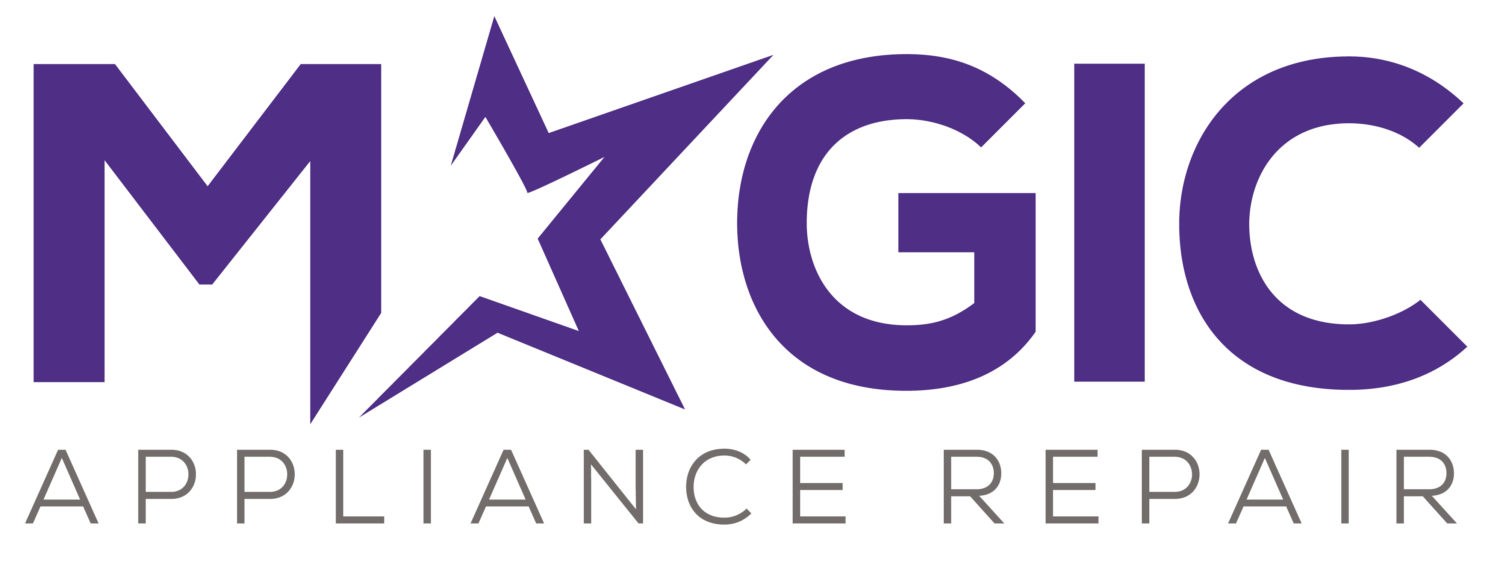Appliance Safety Tips
The appliances inside of your home can make your life less stressful, but when you use them the wrong way, they might pose significant risks. You will want to care for appliances and ensure that they do not turn into dangers by following these helpful appliance safety suggestions from Magic Appliance Repair.
The tips below will help to prevent fires and injuries from household appliances. Even still, hazards can still happen. If an appliance has problems or malfunctions and becomes a danger, reach out to a professional appliance repair.
GFCI Outlets in Wet Locations in Your Home
Kitchens, laundry rooms, bathrooms, basements, outdoor areas and garages can be susceptible to possible dampness or water. As you well know, electricity and moisture don’t go together, that means electrical cords and wires should be plugged into ground-fault circuit interrupters (GFCIs).
This special type of electrical outlet can prevent electrocution by tripping the circuit when any inconsistencies in electricity arise.
If you don’t already have GFCI outlets in damp areas around your home, now is the time to install them or call an electrician in CITY. Then, for safety, heed the warnings of appliance manuals that note that they are not for outdoor use.
Electrical Cords, Outlets & Electronics Far Away From Damp Areas
Several home appliances are specifically designed for outdoor areas, such as charcoal and gas grills. If you make us of electrical appliances outdoors – including refrigerators, dishwashers, ice makers, power tools and more – ensure that all of the cords and outlets are not wet. Weatherproof electronics will help with this, combined with GFCI outlets with water-tight gaskets.
Extension Cords are a Momentary Answer
Extension cords can pose several risks, this includes:
The likelihood of a loose connection that might create sparks and start a fire.
The possibility of power inconsistencies that will damage the appliance.
Greater susceptibility to moisture penetration that could lead to electrocution.
The likelihood of wires overheating and becoming a fire hazard when an inadequate extension cord is used for a high-power appliance.
When deciding on an extension cord for temporary use, be sure that it’s the correct gauge for the electrical equipment in question. The lower the gauge, the bigger the wire size. For example, a basic electrical extension cord for a radio might have a 16-gauge cord whereas a bigger cord for a AC unit needs a 12-gauge wire.
The length is also important. The longer the cord is, the more electricity is gone on the way, something called voltage drop. Short extension cords are advised for power tools and outdoor equipment.
Always Read the Operating Manual for Any Appliance You Purchase
It’s obvious to guess that you know how to use your new washing machine or dishwasher without consulting the manual, but reading the manufacturer instructions is important for many reasons:
You should find out if your house’s electrical wiring is good enough to support the appliance. You might need to install a circuit to prevent overloading your current ones.
You learn about advanced features you might not otherwise known about.
You understand whether the appliance is safe for outdoor areas or not.
You don’t have the stress that can come from trying to run a new appliance without instructions!
Unplug Small Appliances When Not in Use
You are able to limit unnecessary energy use by unplugging small appliances when you are not operating them. This is because small appliances often include LED lights, timers and other features during standby mode.
Unplug monitors, TVs, printers, modems, routers, game systems, smart phone chargers and more to cut back on unnecessary energy consumption. Just remember, it is worthwhile to keep DVRs and similar electronics plugged in to prevent missing out on their automatic background functions.
For extra tips on using appliances safely, or to call a local appliance repair service, please contact Magic Appliance Repair. Our repairmen can repair all major home appliances!
OTHER RESOURCES:
Appliance Repair Cost
DIY Appliance Repair Tips
Repair or Replace Appliances
Refrigerator Parts
Home Services Campaign Disclaimer: This site is a free service to assist homeowners in connecting with local service providers. All contractors/providers are independent and this site does not warrant or guarantee any work performed. It is the responsibility of the homeowner to verify that the hired contractor furnishes the necessary license and insurance required for the work being performed. All persons depicted in a photo or video are actors or models and not contractors listed on this site.
Copyright ©2026 Magic Appliance Repair
